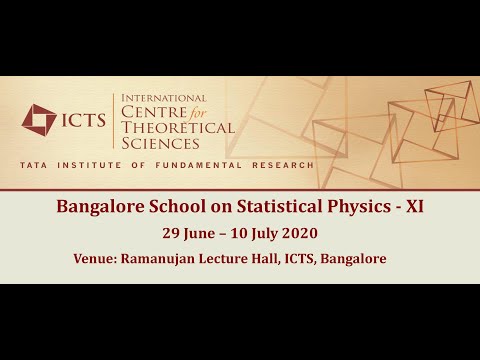Description:
Explore nonequilibrium response theory in this comprehensive lecture from the Bangalore School on Statistical Physics XI. Delve into fluctuations and responses in nonequilibrium systems, examining linear response around equilibrium and the fluctuation-dissipation theorem. Investigate specific examples like random walks and particles in heat baths to understand practical applications. Learn about equilibrium distributions, Einstein relations, and overdamped diffusion. Gain insights into thermodynamic interpretations and entropy generation along trajectories. Conclude with a Q&A session to reinforce understanding of this advanced topic in statistical physics.

Nonequilibrium Response Theory - Lecture 1
Add to list
#Science
#Physics
#Statistical Physics
#Thermodynamics
#Computer Science
#Information Theory
#Entropy
#Mathematics
#Statistics & Probability
#Probability Theory
#Random Walks
#Brownian Motion